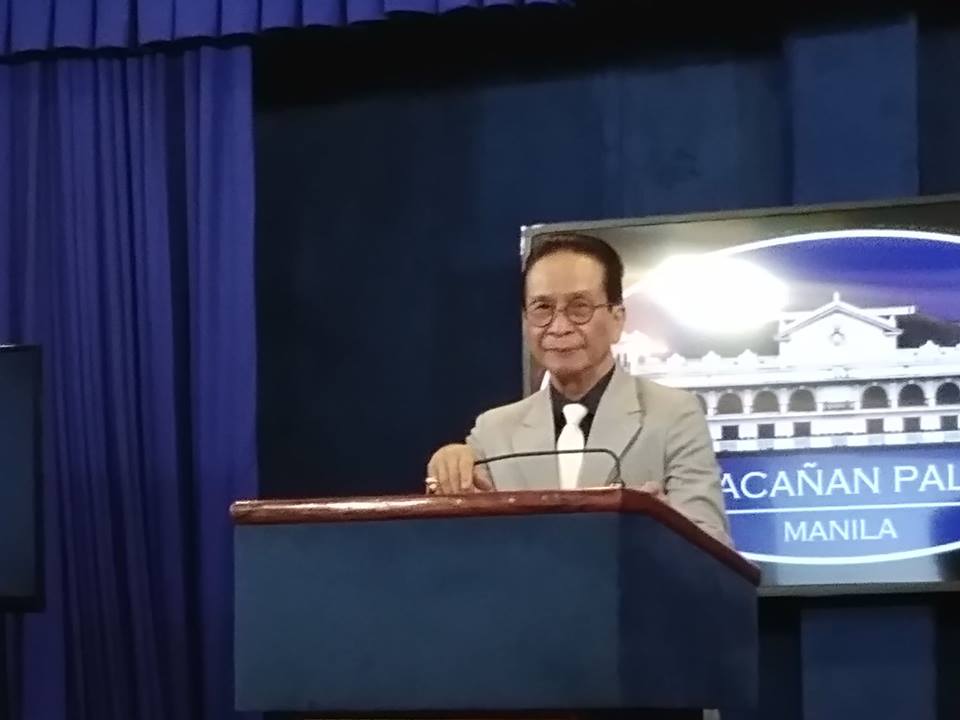News
Universal healthcare can be implemented gradually: Palace

Panelo also assured that the government can find other ways to source funds for its implementation. (Photo: PTV/Facebook)
MANILA — Malacañang on Wednesday said it is open to the possibility that Universal Health Care (UHC) may be implemented “gradually” without revenue from higher tobacco excise tax.
Presidential Spokesperson Salvador Panelo said while Congress has yet to draft a final bill raising tobacco taxes, the executive can make do with the PHP3.8 trillion budget for 2019.
“Kung wala pang pera, di we’ll have to…kumbaga kung ang project mo ay 10 projects in one year, ay kung di mo naman kayang pondohan ay medyo i-reduce mo muna (If we don’t have money yet, we will, let’s say, if you have 10 projects in one year and can’t fund it, you can reduce costs first),” Panelo said in a Palace briefing.
Funds for the UHC program will be sourced from the incremental sin tax collections, charity fund from Philippine Charity Sweepstakes Office, income from the Philippine Gaming Corporation, premium contribution of members, annual appropriations of the Department of Health (DOH), and government subsidy to PhilHealth.
“Pagkakasyahin muna natin until such time dumating yung pondo (We can try to make it fit until such time that he funds from excise tobacco tax arrive),” he said.
Panelo also assured that the government can find other ways to source funds for its implementation.
“Gradual ang implementation (Implementation is gradual) but there are many ways to augment their resources,” Panelo said.
“I’m sure our government will know how to source funds in accordance with the Constitution,” he added.
President Rodrigo R. Duterte is expected to sign the Universal Health Care bill into law on Wednesday afternoon.
Both houses of the Congress ratified the bicameral conference committee report on the UHC on Dec. 10, 2018.
Duterte earlier said he wanted to provide affordable, if not free, medicines and healthcare to the poor under the program.
He has also certified the passage of the UHC as urgent to make accessible a comprehensive, and quality health care program for all Filipinos and immediately enroll them in the National Health Insurance Program.





















